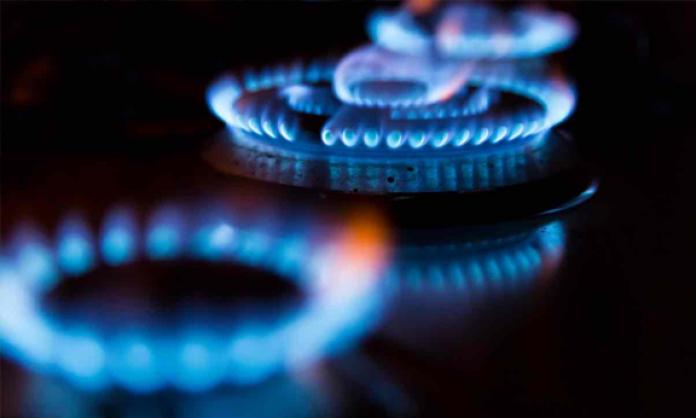The biggest criminals sometimes hide in plain sight. Such is the case with Australia’s gas giants – Origin, Shell and Santos – and political leaders, chief among them Malcolm Turnbull, who are facilitating the heist they’re carrying out against the Australian people.
The narrative we’re being fed about Australia’s “gas crisis” goes like this. State government restrictions on new gas developments and increasing domestic demand mean that in the next two years the country faces a significant gas shortage. To address this, the government has (heroically) struck a deal with the gas giants, which have promised to set aside enough gas to cover the forecast shortage.
This, however, is no long term solution. What needs to happen, we’re told, is for states to put aside their environmental concerns and declare open slather on fracking.
Fracking is the method used to extract gas from unconventional sources such as coal seams and shale. It involves injecting chemicals into the ground at high pressure, forcing the gas out of the rock.
It also contaminates the surrounding countryside and waterways. In 2016, New South Wales Greens MP Jeremy Buckingham went to the Condamine River in Queensland and filmed himself on a boat igniting the water with a lighter. “This area has been drilled with thousands of CSG [coal seam gas] wells and fracked. This river for kilometres is bubbling with gas and now it’s on fire”, he said.
The “gas crisis” narrative peddled by Turnbull and others is an utter fabrication. Australia doesn’t suffer from a shortage of gas. It is awash with the stuff.
Problem is, most of it is being sucked into the gas giants’ liquefaction plants and shipped off overseas. According to Australian Energy Market Operator forecasts for 2018, out of 1,901 petajoules (PJ) of gas produced in eastern Australia, 1,314 will be exported, leaving only 587 PJ for domestic use.
The justification for this is that Origin and Co need to fulfil long term export contracts signed in the hope of recouping the significant investment they made in their liquefaction plants (each of the three plants is estimated to have cost $20 billion).
Just at the point, in 2015, when the plants became operational, there was a global glut, and the price of gas plummeted. To make good on their investment, the companies must export much greater quantities of gas than they otherwise might have.
Only the most blinkered of neoliberal ideologues would think that this corporate sob story justifies creating a shortage of gas in Australia, leading to the absurd situation in which domestic users are paying more than the companies’ customers overseas. Why should people in Australia pay for the gas giants’ bad investment decisions?
It would still be an outrage if this “making good on investments” story was the end of it. But there’s something even more sinister going on.
Besides exporting gas to fulfil their long term contracts, the gas giants are selling it on the international spot market (the market for day to day, “real time” commodity trades). The amount they’re selling is more than enough to cover the supposed “shortage” Australia will face over the next two years.
The real kicker, though, is that they’re selling this gas for less than they would get were they supplying it to the domestic market. The spot market in the southern Australian states averaged $9.52 per gigajoule (GJ) in the second quarter of this year. Over the same period, the price of gas on the Asian spot market was just $6.50 per GJ.
This might seem irrational. But when you look beneath the surface, it all makes sense.
It’s like the Inception of rorts. The first rort – keeping the price of gas high by exporting most of it overseas, and bringing them windfall profits on the domestic market – is designed to “incept” the idea that we should open Australia for fracking and allow them to rort us some more.
When it comes to fracking, it won’t just be our wallets that hurt, but also the farmland, rivers and ecosystems on which our health and wellbeing depend.









